32 things to know about Dutch shepherd dogs
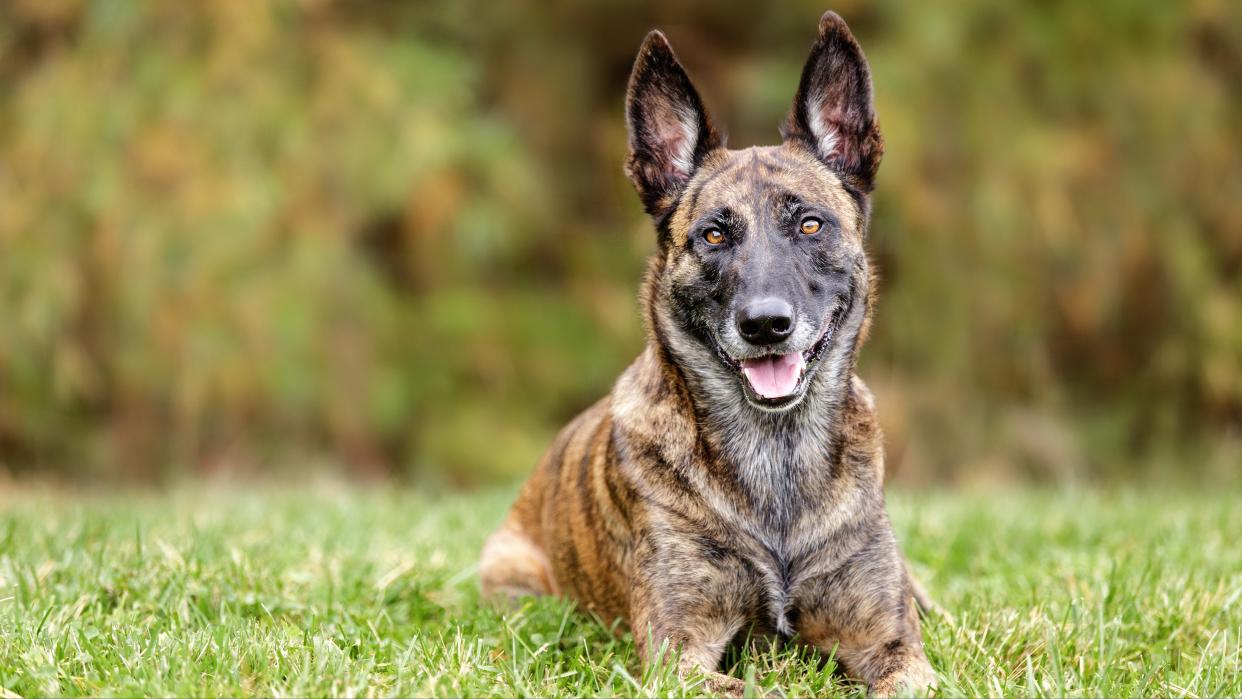
There are so many things to know about Dutch shepherd dogs — starting with what amazing all-rounders they are. If you're looking for a pup that can work alongside you on the farm, keep up with you on a run, protect you and your family, and be a truly loving and devoted friend, the Dutch shepherd may well be the canine companion for you.
An incredibly intelligent dog who picks up new skills and behaviors quickly, you'll find training the Dutch shepherd an absolute dream — as long as you use lots of praise and plenty of the best dog treats!
Active dogs who love having a job to do, this breed is ideal for outdoor-loving individuals and families who have the time and stamina to devote to an energetic pup. Read on to discover more about the affectionate and loyal Dutch shepherd dog...
32 things to know about Dutch shepherd dogs
1. They were created in 1898
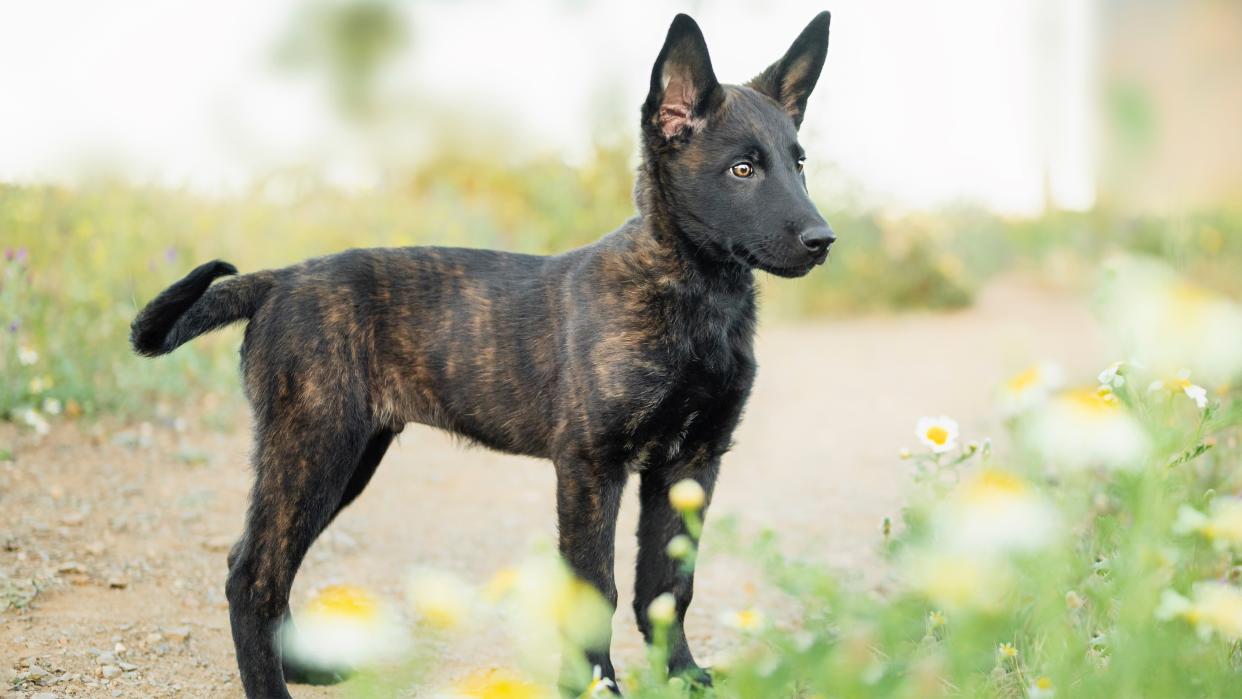
The first breed standard was developed in 1898 and allowed all coat colors, however it was edited in 1914 to limit the Dutch shepherd dogs' coloring to brindle. This was to avoid confusion with other shepherd breeds, such as the German shepherd.
2. They were originally bred to be farm dogs
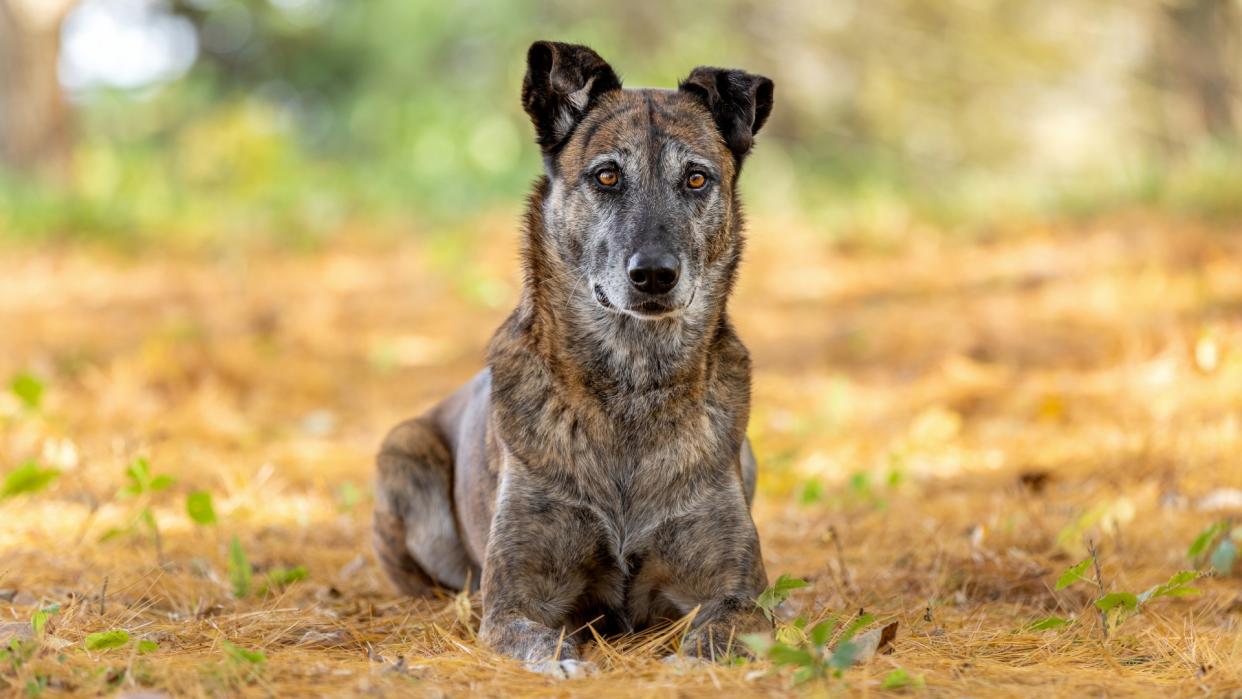
Originating in rural areas in the Netherlands, the Dutch shepherd dog was developed because farmers needed a well-rounded breed that could herd cattle, pull carts to market, and guard the farm. To this day they remain one of the best dog breeds for life on the farm.
3. World War II almost drove the Dutch shepherd to extinction
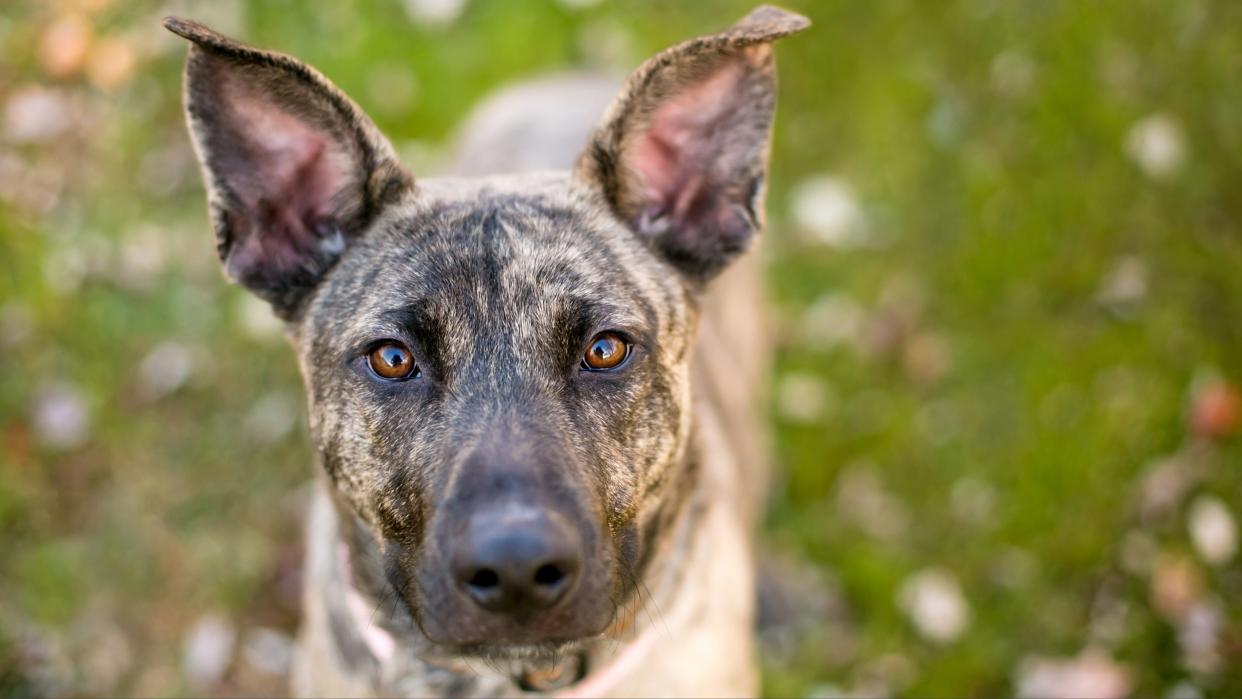
During WWII, the Netherlands stopped all breeding of the Dutch shepherd dog. This, coupled with starvation from a lack of food and German troops taking them to use on the frontlines meant that the breed almost became extinct.
4. In the 21st century they became popular service dogs
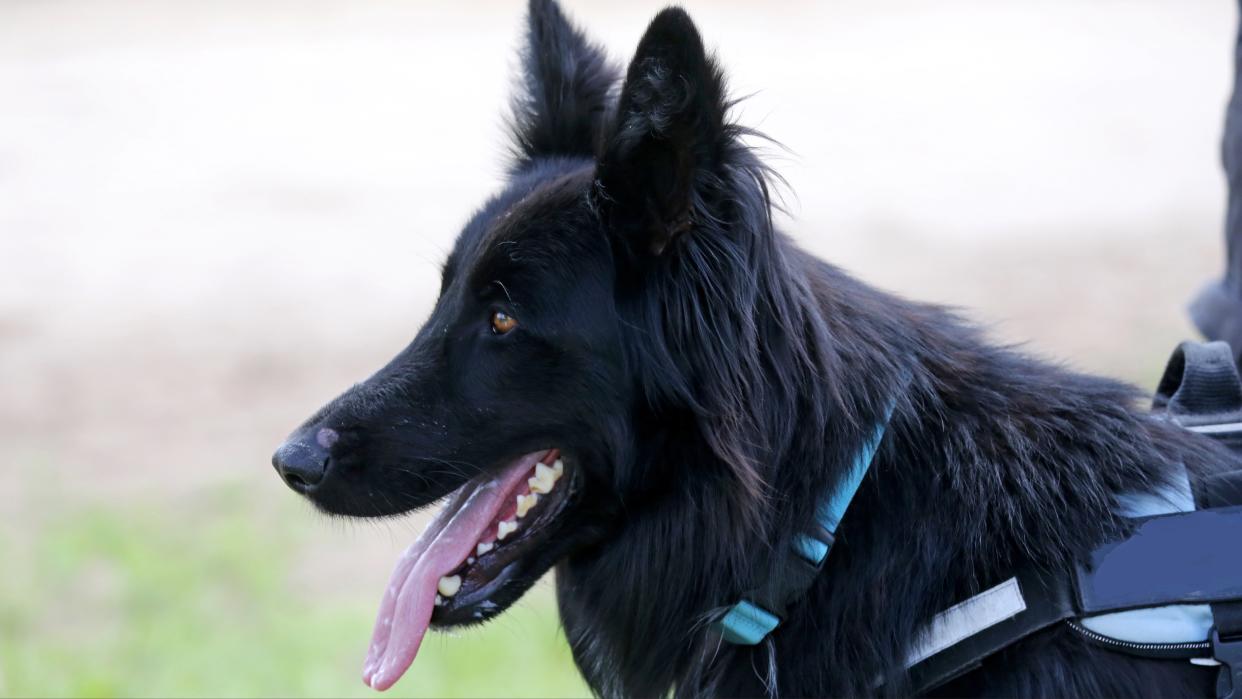
A decrease in farming practices in some areas meant that the Dutch shepherd dog needed to find other areas it could excel if it were to survive and thrive. Thankfully, this is one intelligent pup, meaning they quickly found new roles as search and rescue dogs.
One of the most important things to know about service dogs is that they have an outstanding work ethic, making Dutch shepherd dogs perfect candidates for this job.
5. They sometimes get confused with the German shepherd
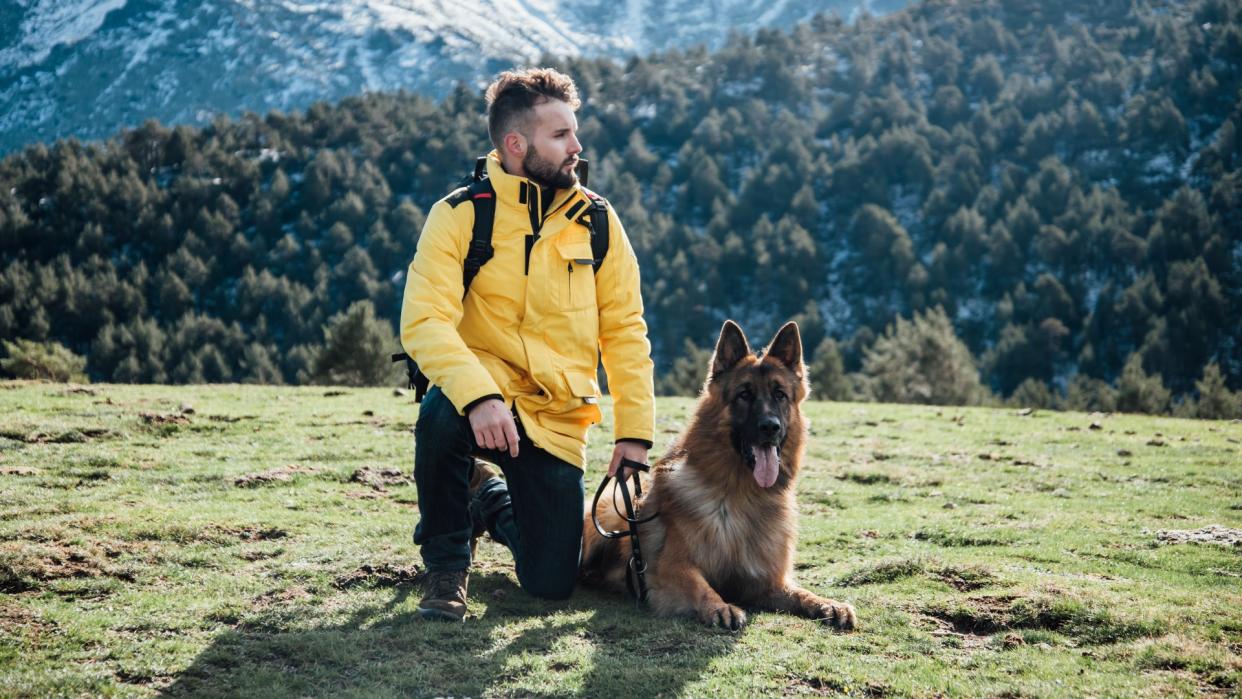
It’s not unusual for people to confuse the Dutch shepherd with both the German shepherd and the Belgian malinois. And while they do share similar ancestry, the Dutch shepherd is considered healthier, much easier to train, and one of the best dogs for families.
6. Their coat comes in a variety of colors

While gold brindle and silver brindle tend to be the most common, the Dutch shepherd also comes in a gray and blue-gray brindle as well as a salt and pepper shade.
7. They learn tricks quickly and easily
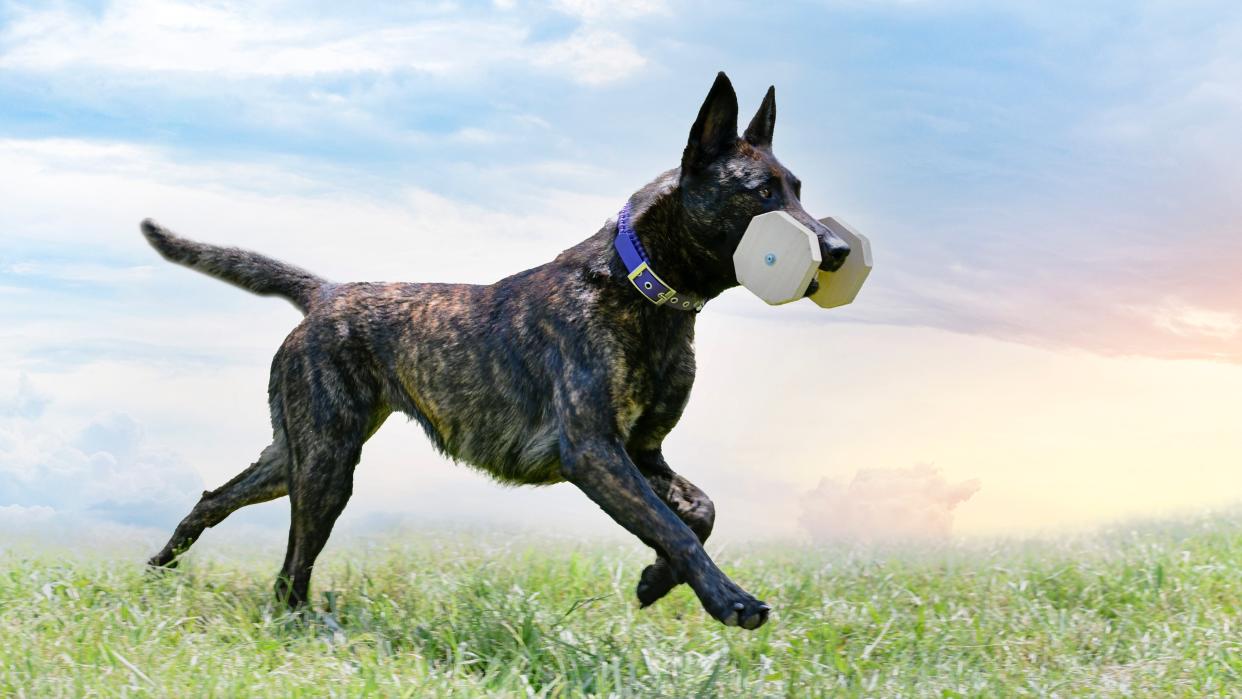
Even armed with a ton of tips for training your dog on your own, the process of helping your dog get to grips with new things can feel overwhelming. Thankfully, the Dutch shepherd is a super smart pup who thrives on learning and adores mastering new tricks.
8. They require a lot of mental stimulation
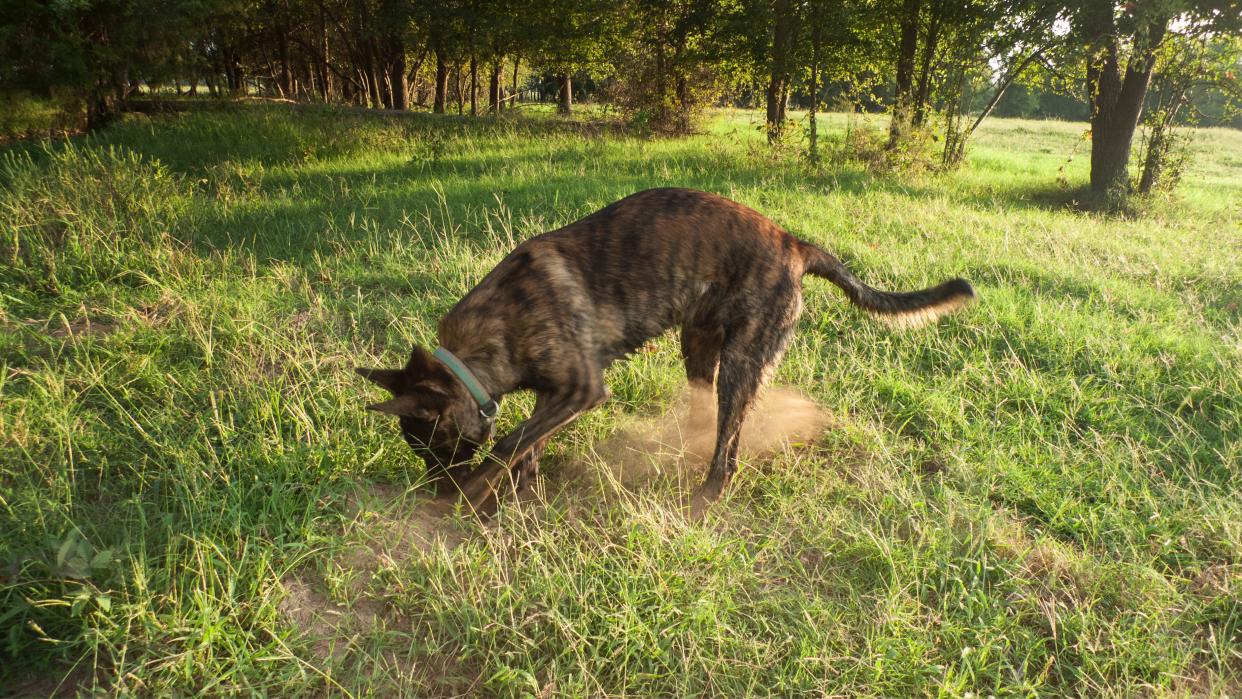
Because they’re such bright pups, Dutch shepherds require a lot of mental stimulation in the form of the best dog puzzle toys and other brain games for dogs to prevent boredom and destructive behaviors.
9. Daily physical exercise is a must
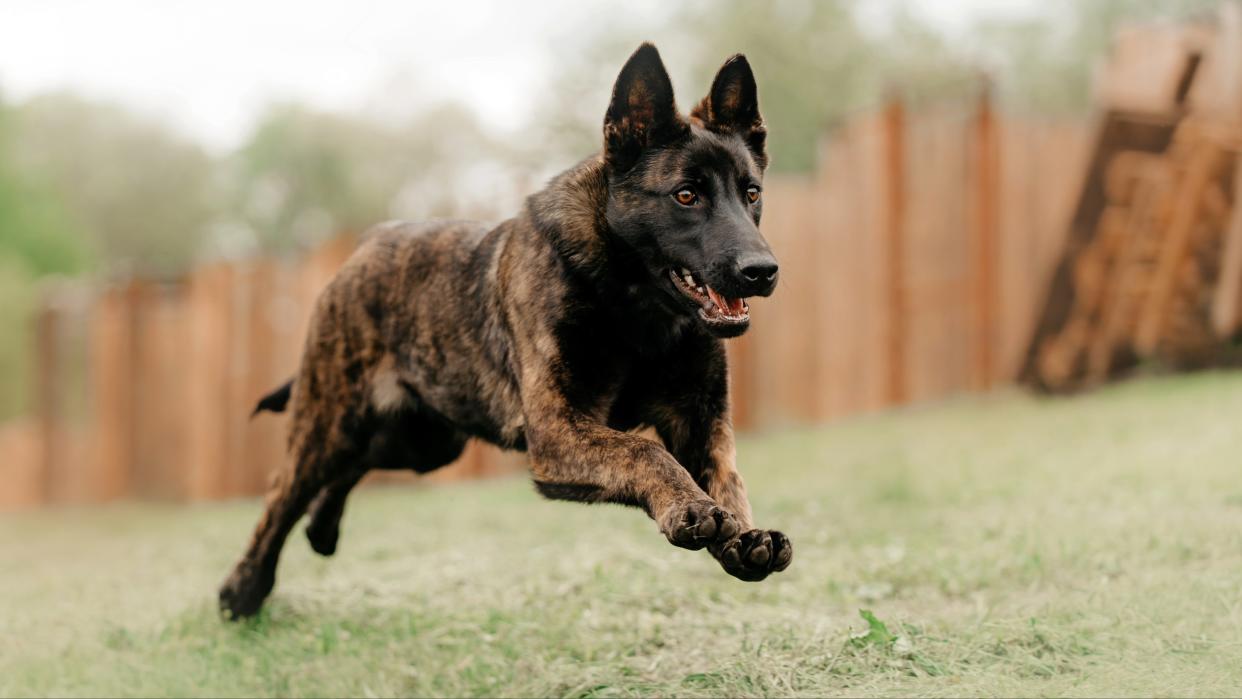
If you’re thinking of adopting a Dutch shepherd and you’re looking for ways to be a responsible dog owner, one of the best things you can do is ensure your new fur friend gets plenty of exercise. This is a highly active breed that requires at least 90 minutes of physical activity every day to stay happy and healthy.
10. Their coat comes in three different lengths
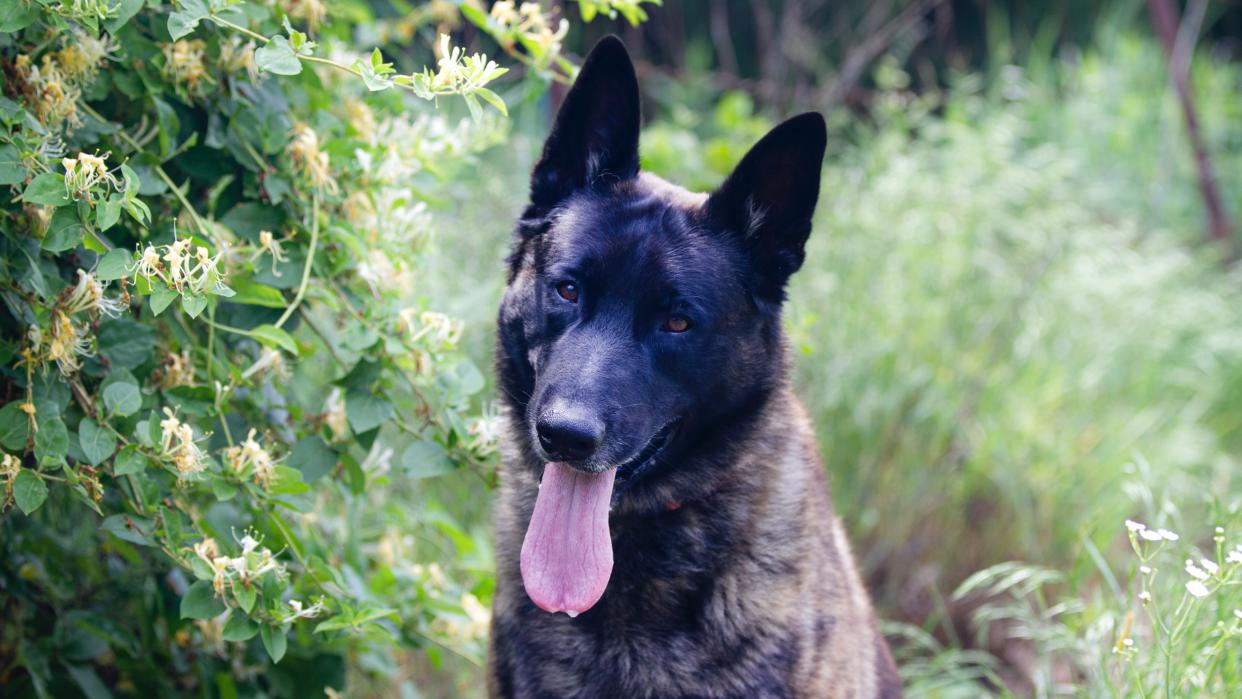
The Dutch shepherd has three coat types — short-haired, long-haired and rough-haired. The short-haired coat is close fitting across the dog's entire body and is paired with a wooly undercoat. The long-haired coat also comes with a wooly undercoat and is straight, thick, and can be harsher to the touch than the short-haired version. The rough-haired coat is dense and tousled with a wooly undercoat all over the body, except for the head.
11. Dutch shepherd dogs require a lot of time and energy
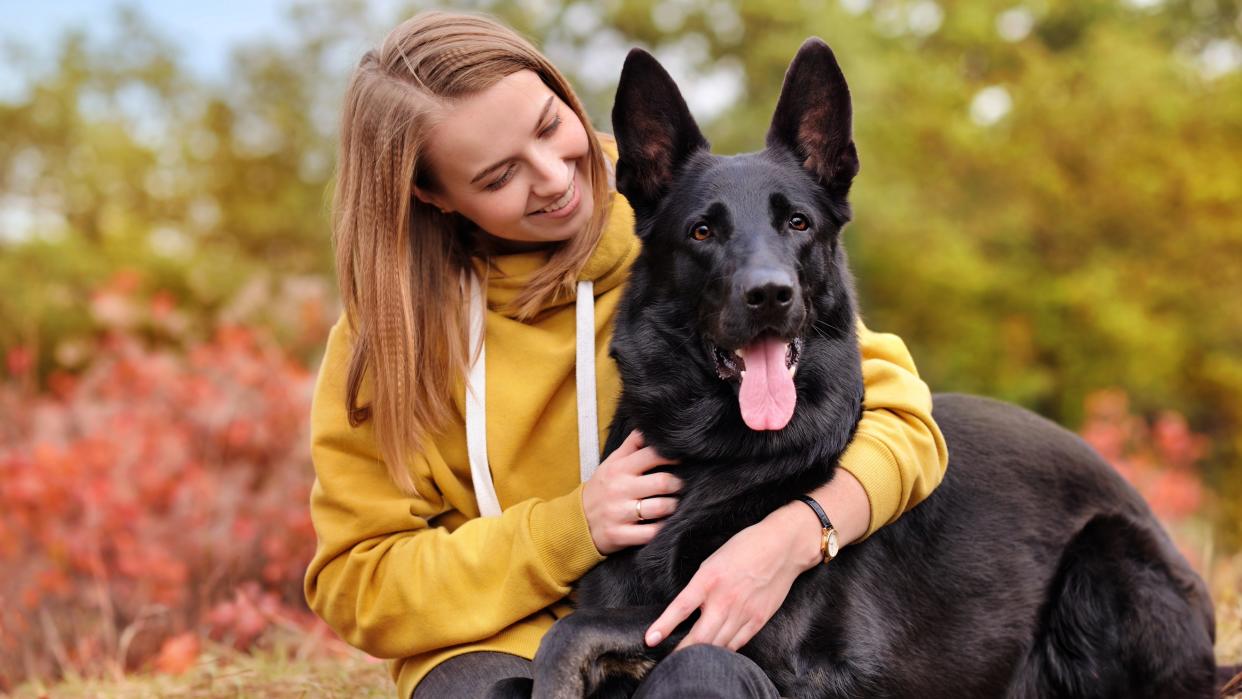
You don’t necessarily have to be a highly experienced dog owner to welcome a Dutch shepherd into your family but you do have to be someone who has a lot of time and energy that you can invest in them.
That’s because they require a lot of mental and physical stimulation to stay happy and healthy. If they don’t have something to keep them active and interested for most hours of the day, you’ll find they’re likely to go in search of it and start getting into mischief.
12. They make great running and hiking buddies
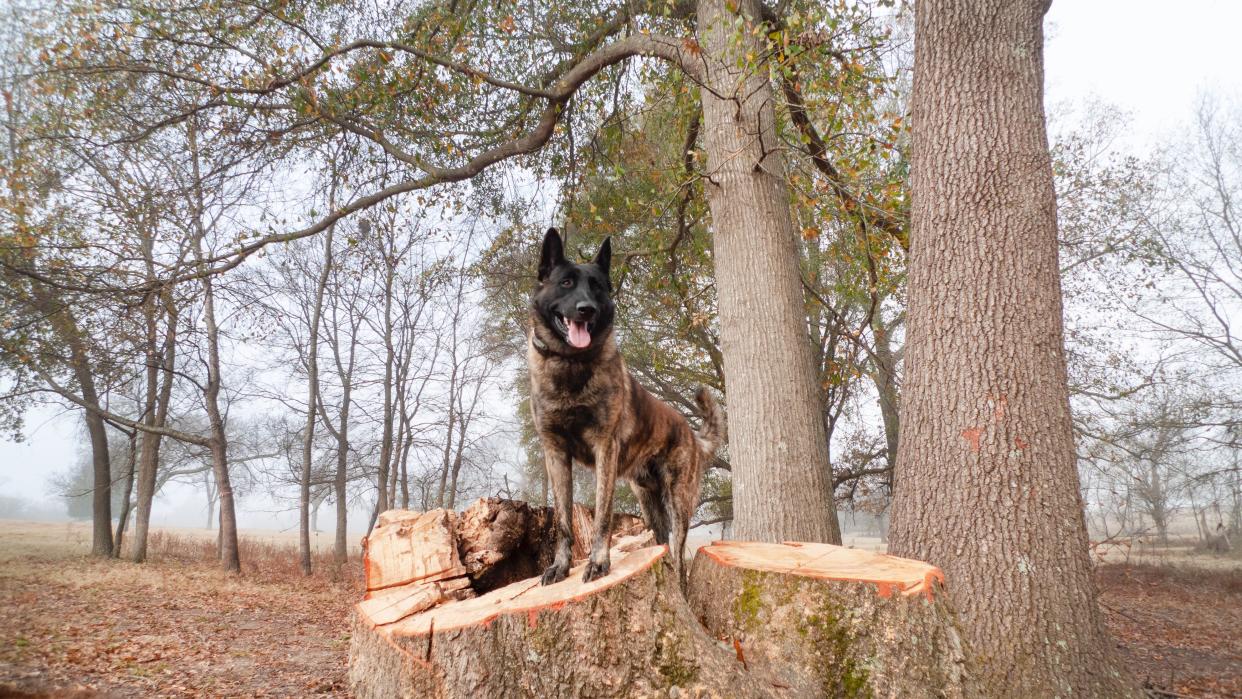
“I bonded with my dog through running” is a comment you hear a lot from people who live active lifestyles and are looking for a canine companion who will share their love of the outdoors. And thankfully, you’ll find that a running buddy is pretty much guaranteed if you adopt a Dutch shepherd. These energetic and active dogs have boundless energy, so they’ll have no trouble keeping up with you as you pound the pavement or step it out on one of the best dog walks in the US.
13. They're incredibly loyal
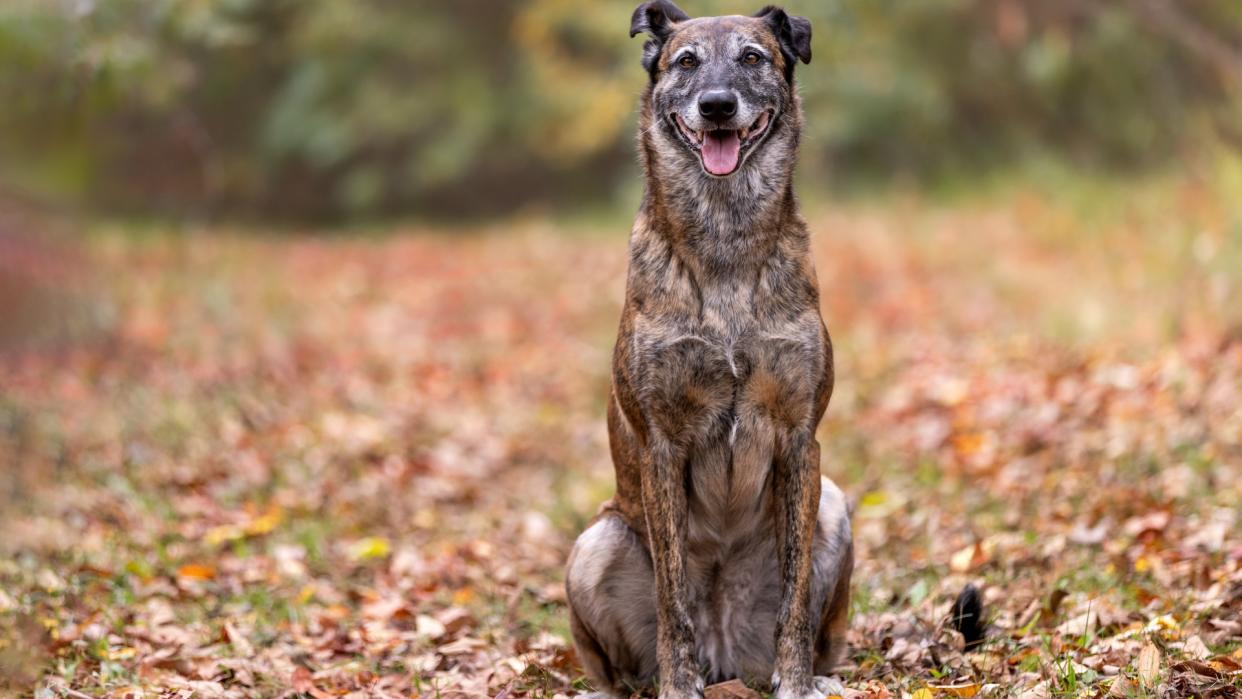
Steadfast, loyal, and devoted, the Dutch shepherd form very close bonds with their family, and because of that, they can be very protective and territorial. Early socialization is key with this breed to ensure these instincts are channeled appropriately.
14. Their grooming needs vary
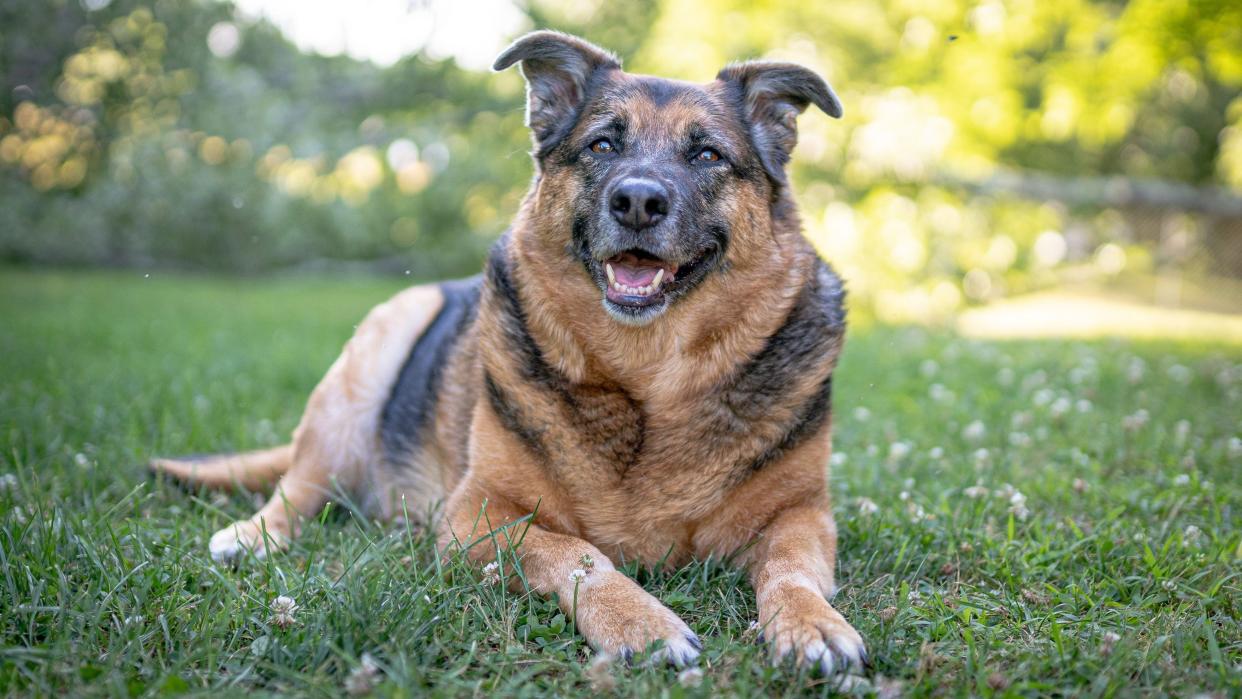
Because they come in three different coat types, this breed's grooming needs can vary. Short-haired dogs are very low maintenance, requiring only an occasional brush to keep their fur looking fabulous.
Long-haired dogs need a little more upkeep, and a good weekly brush with one of the best dog brushes, ideal for warding off mats and tangles. Rough-haired dogs need the most in the way of grooming, with weekly brushes and professional hand-stripping twice a year.
15. Dutch shepherd dogs are a healthy breed
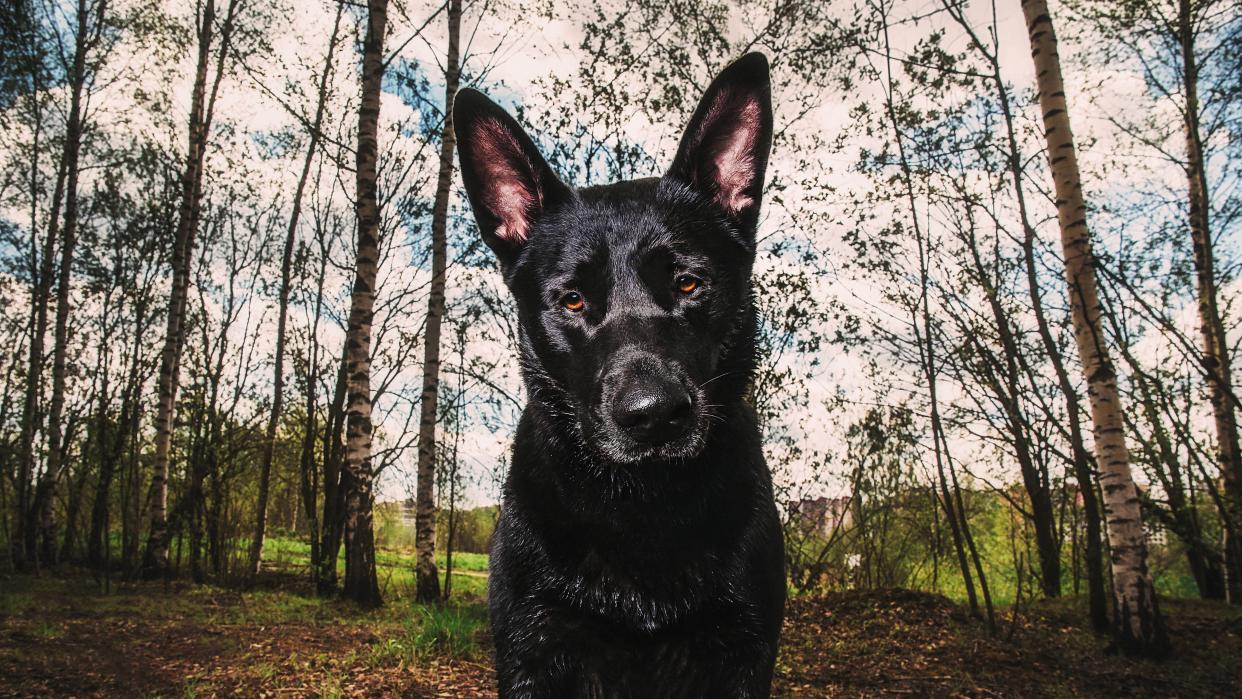
The Dutch shepherd dog is generally a very healthy breed with a robust constitution. With regular vet checkups, daily exercise, and a balanced diet in the form of the best dry dog food or the best wet dog food, most Dutch shepherds will live for around 15 years.
16. They're very affectionate
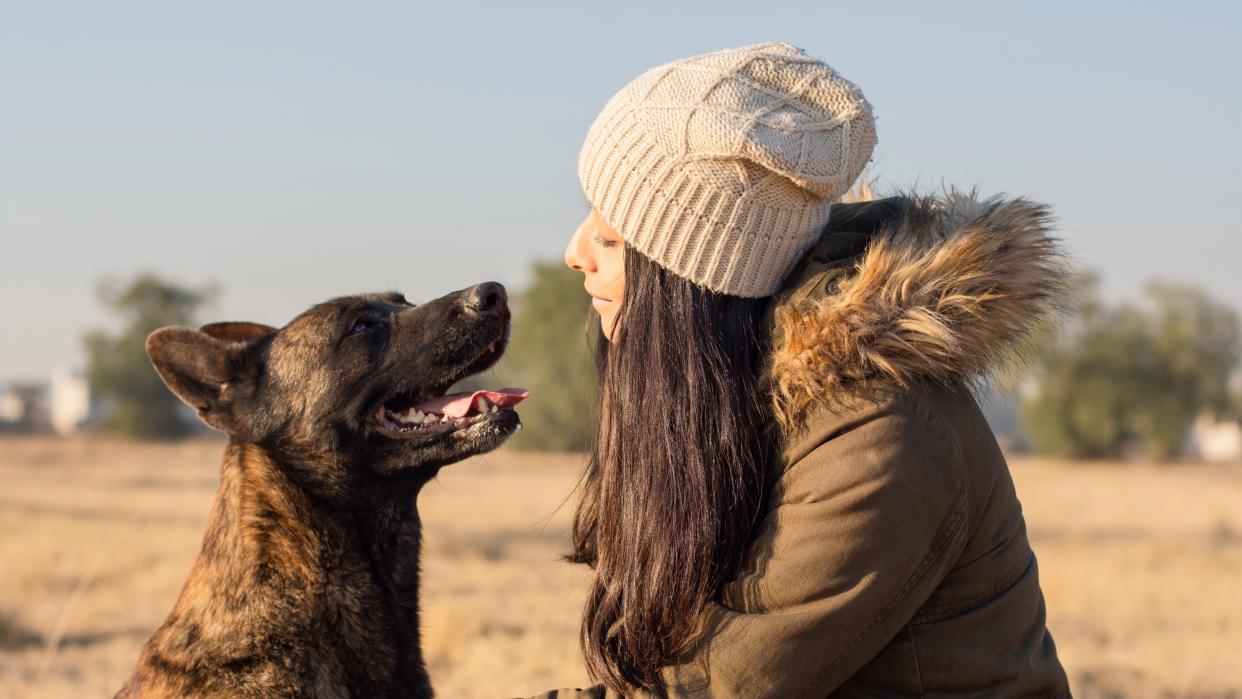
Looking to adopt one of the most affectionate dog breeds? The Dutch shepherd may not be the first pup that springs to mind, but believe it or not, this loving dog is known for frequently nudging their owners whenever they need a good belly rub. They’ll return your affection in spades too, making it a win-win situation.
17. This breed is a real jack-of-all-trades
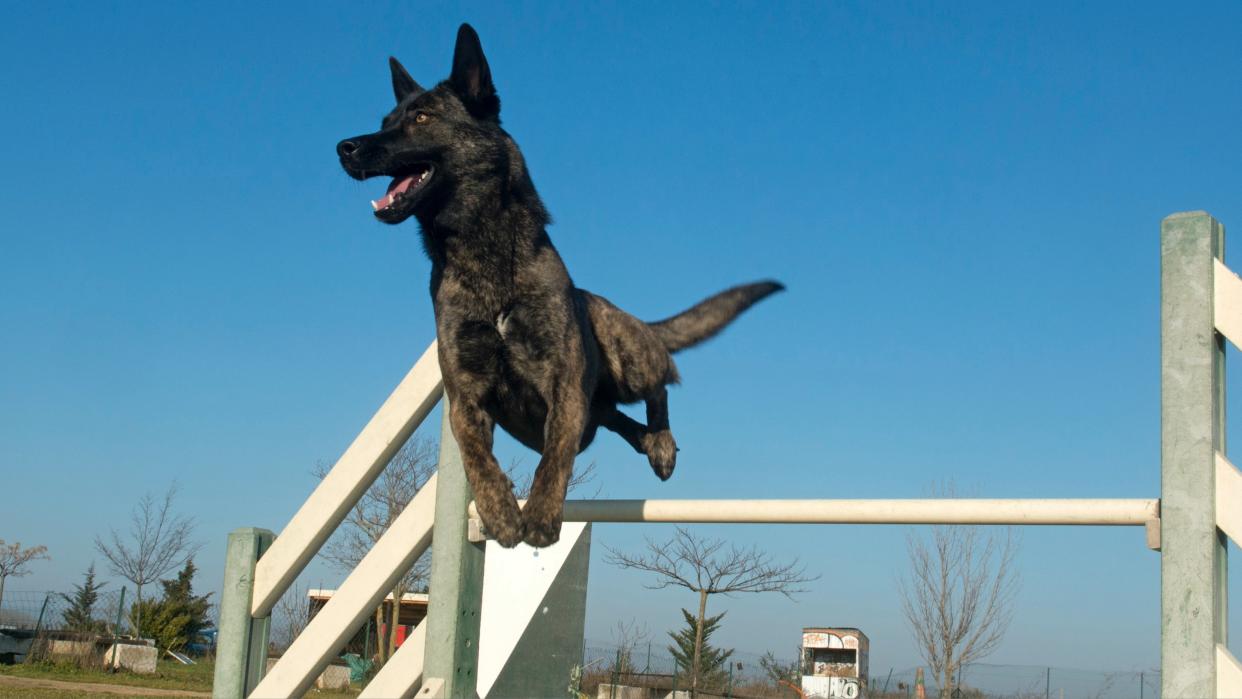
An intelligent and rustic all-rounder, the Dutch shepherd excels at farm work, obedience, and agility training, as a police dog and a search and rescue teammate. Not to mention that they make wonderful companions for active families.
18. They get on well with kids and other pets
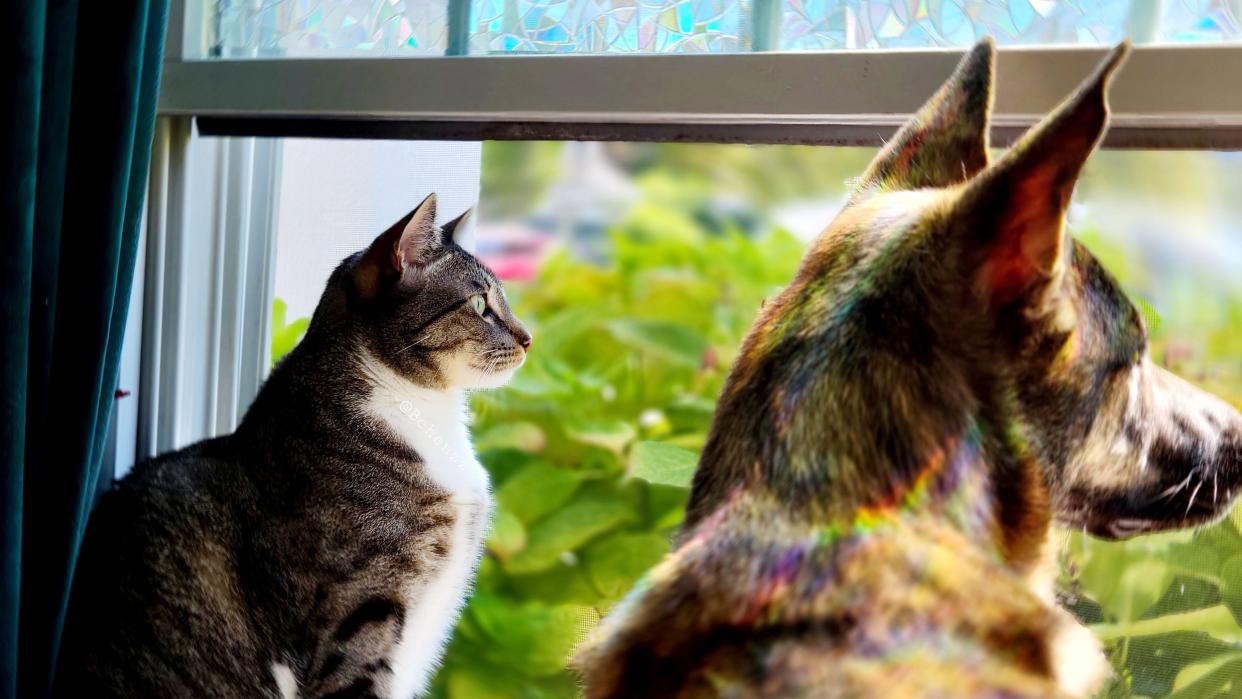
Flexible and adaptable, the Dutch shepherd is a tolerant dog who’s patient with children and other pets as long as they’re properly socialized from a young age. Because they’re energetic, affectionate, and devoted, children will find they make loyal and loving companions and playmates.
19. Early socialization is key
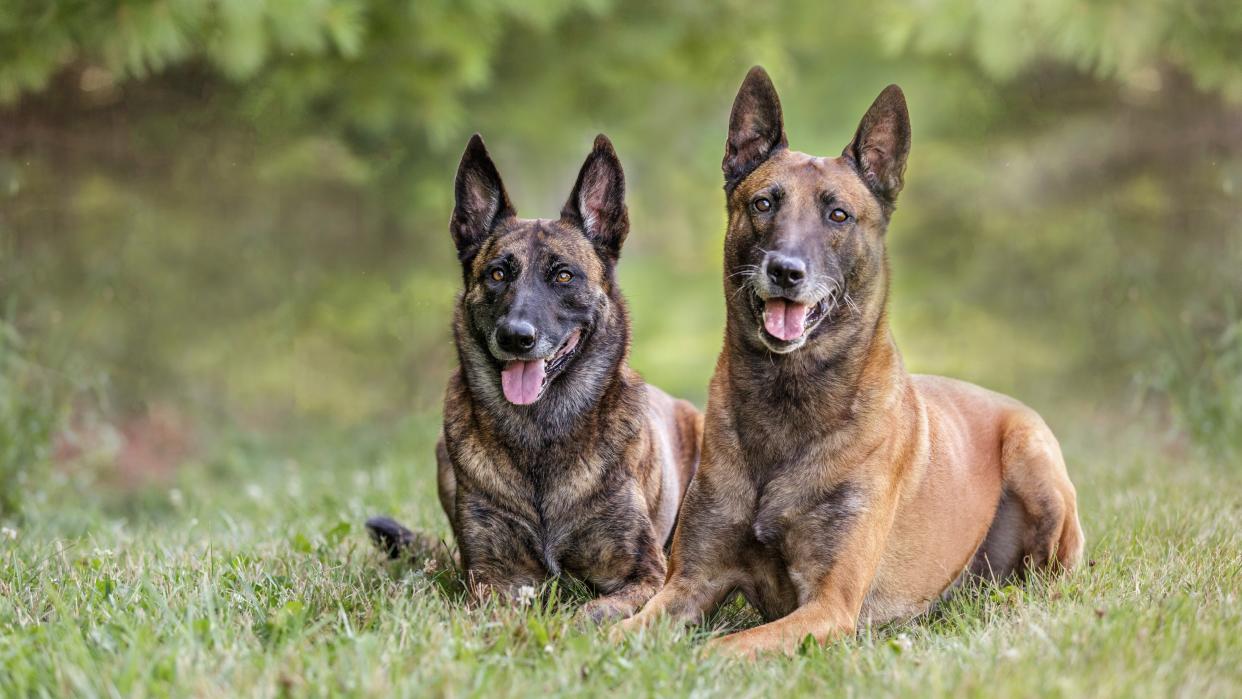
When it comes to our top tips for socializing a puppy, getting started early is always top of the list. Expose your dog to as many sights, sounds, environments, smells, and people as you can as this will help them become their most friendly self. Their natural guarding instincts mean they can be territorial, so socializing will help them learn how to channel this behavior appropriately.
20. They do well in both hot and cold climates
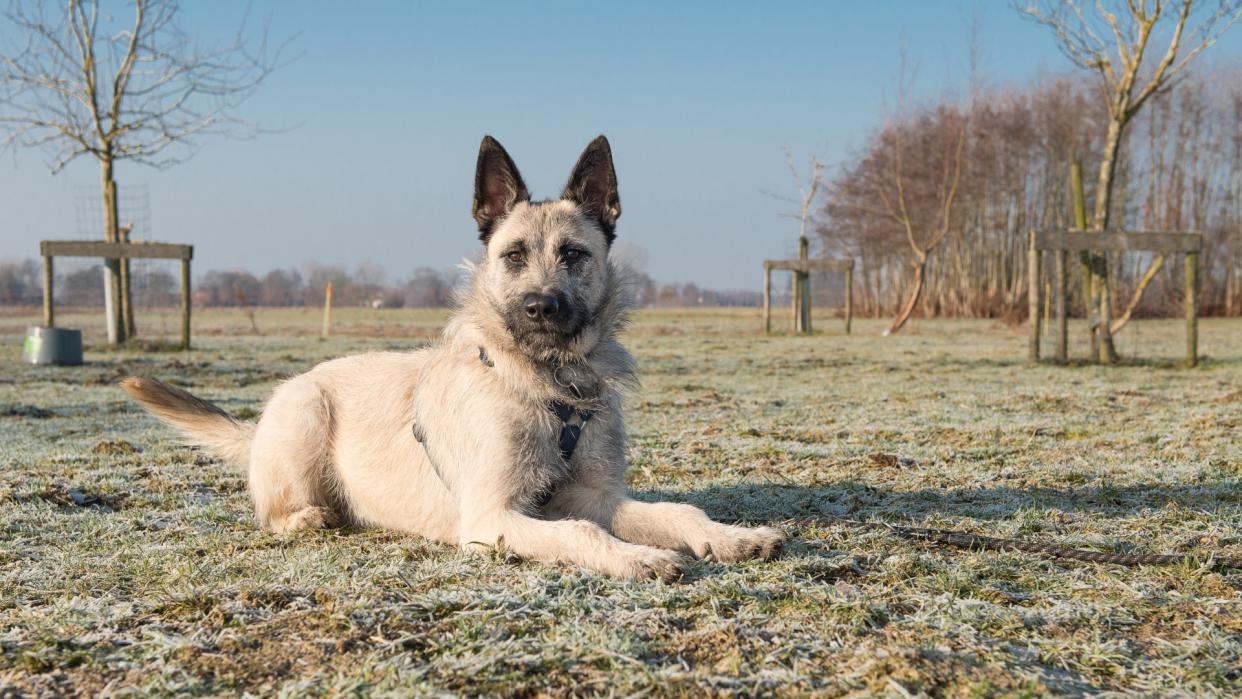
Whether you’re after one of the best dog breeds for cold climates or the best dog breeds for warm climates, you’re in luck with the Dutch shepherd because they’ll fare well in both! Their comfortable coat ensures they stay cool when the temperature heats up and snuggly warm when the mercury drops, so this hardy dog is a great choice no matter where you live.
21. They're very obedient
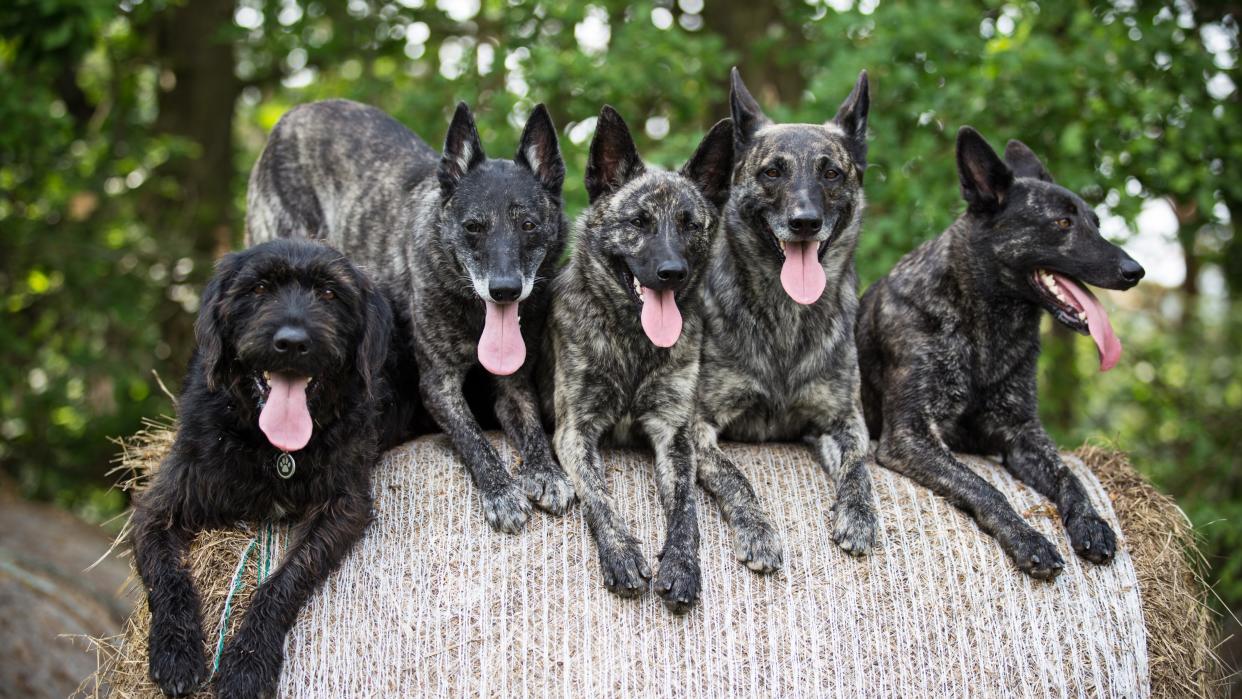
Possessing a great work ethic and temperament, the Dutch shepherd is an obedient and trainable dog. Their keen intelligence means they respond best to shorter training sessions with fewer repetitions as they tend to pick things up quickly and you’ll find they become more driven and responsive the more mentally stimulating something is.
22. Known for their strong protective instincts
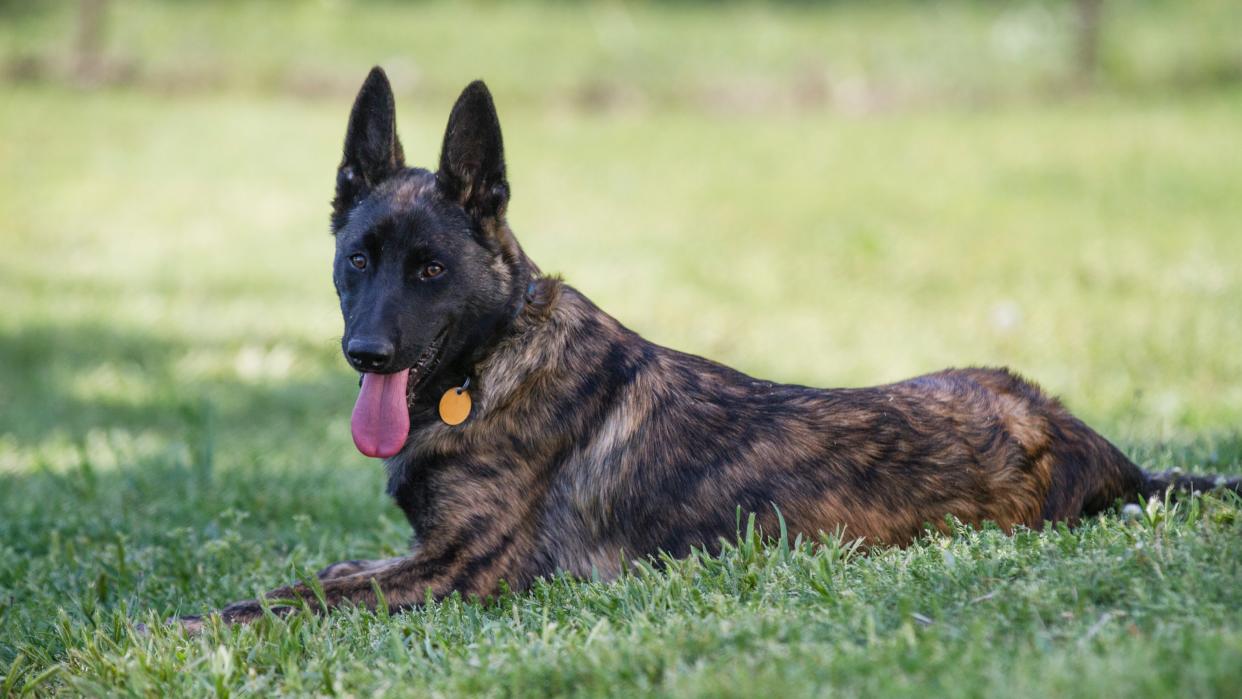
As you’d expect from a dog that often serves alongside the police and in various search and rescue roles, the Dutch shepherd is well known for its protective instincts, stable nerves, courage, determination, and utter devotion to its handler and pack.
23. They're a medium-sized breed
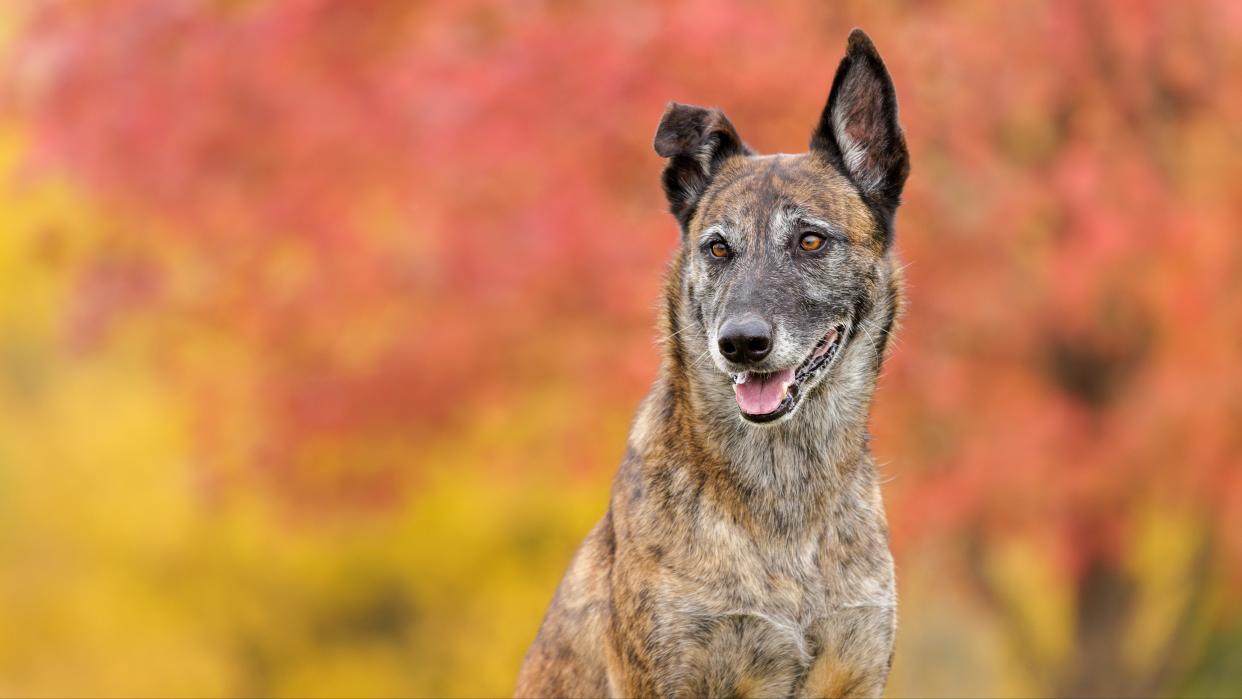
A medium-sized athletic dog with a muscular and well-balanced body, the Dutch shepherd has a deep and long chest and powerful legs that enable it to move swiftly and smoothly.
24. They're great watchdogs
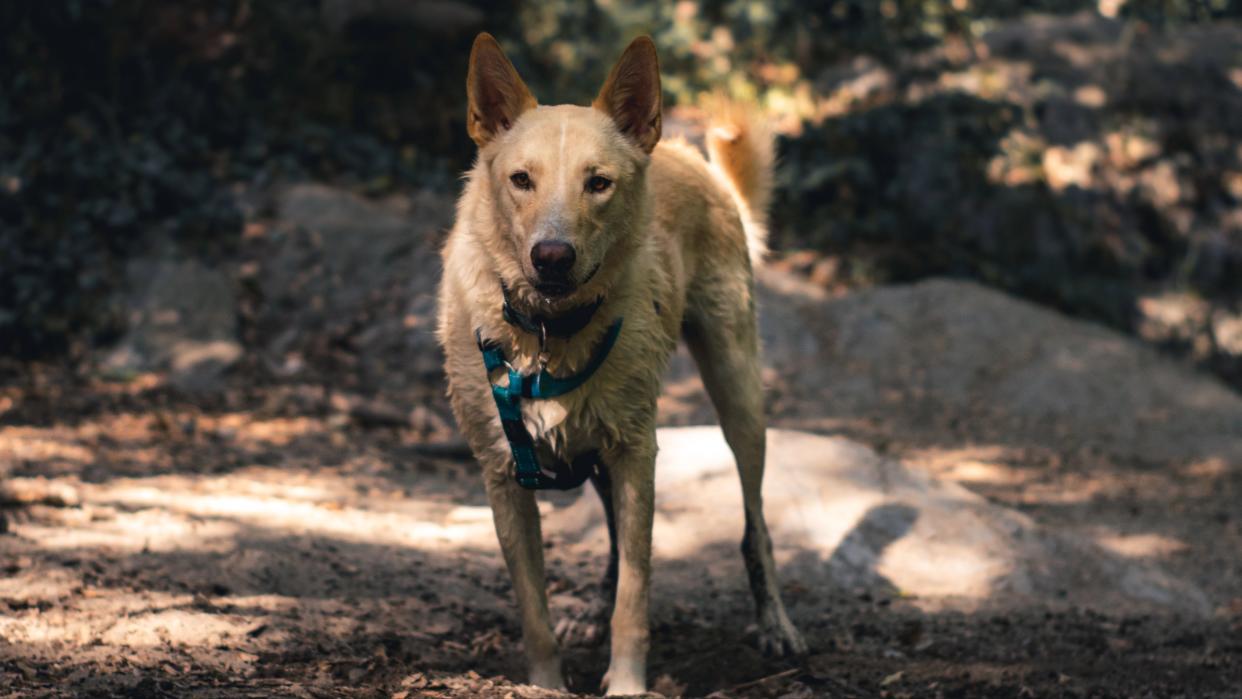
Looking for one of the best guard dog breeds to keep you and your family safe? The Dutch shepherd may just be the pup for you. Their strength and agility coupled with their protective nature and caution around strangers make them outstanding guard dogs.
25. Their diet should be formulated to meet their active lifestyle

Because the Dutch shepherd is an active and energetic breed, it’s important to ensure their diet is appropriate for their lifestyle. Most Dutch shepherds require four cups of the best dog food each day split into two portions, although we recommend speaking with your vet who will be able to offer nutritional guidance based on your dog’s specific needs.
26. They have athletic bodies
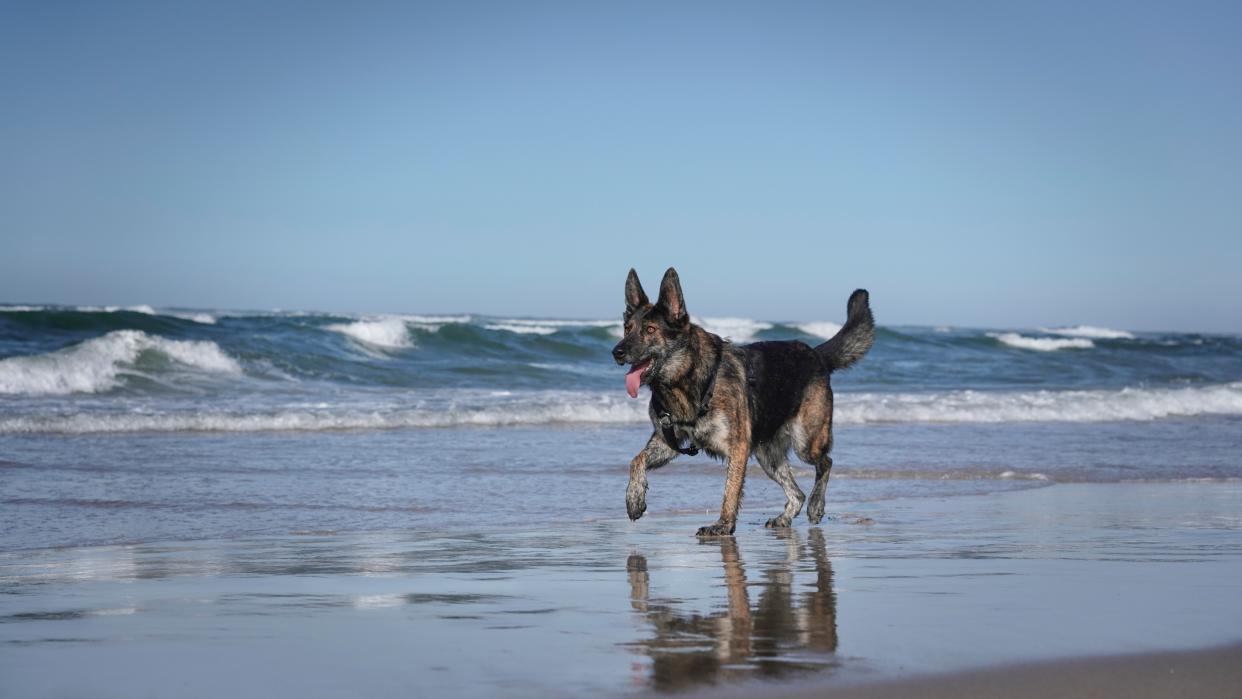
The Dutch shepherd has an athletic body and endless endurance, which is not surprising when you consider that they excel at agility, flyball, dock jumping, tracking, nose work, and weight pulling. They’re also one of many dog breeds that are made for swimming and love spending time in the water.
27. They don't like being left alone
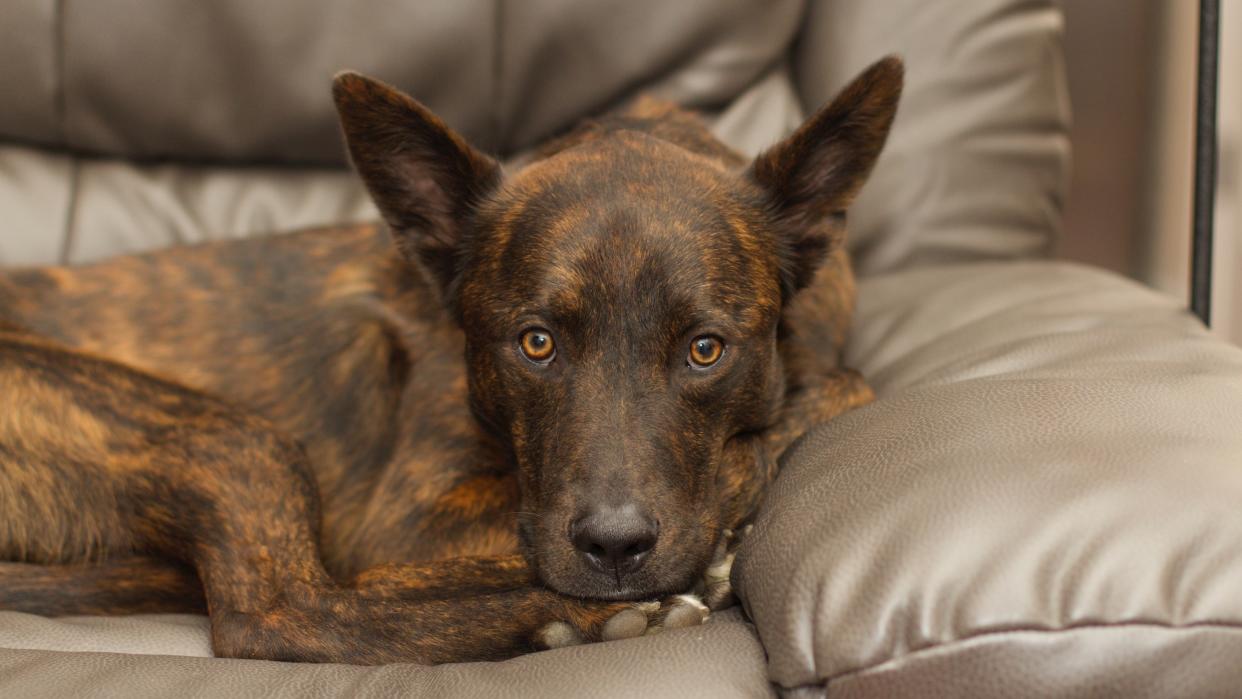
Because they were bred to work, the Dutch shepherd isn’t fond of being left alone without a task to complete or a job to do. When it comes to how to reduce separation anxiety in dogs, the best thing you can do with this breed is to make sure you prepare well ahead of time. If you know you’re going to need to leave them on their own for a few hours, exercise them really well before you head out, and be sure to give them a stimulating food puzzle or a long lasting dog chew before you head out the door.
28. Positive reinforcement is key with this breed
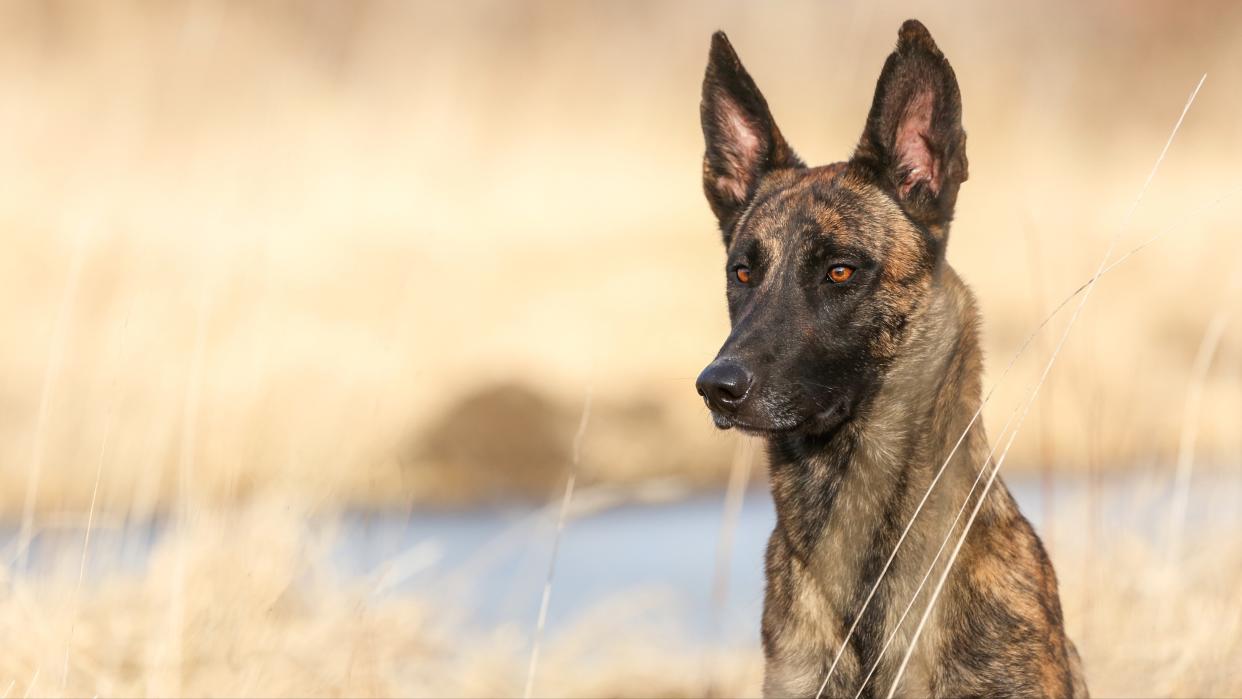
Positive reinforcement for dogs is a way of training where your pup gets rewarded for doing a particular behavior, making it more likely that they’ll repeat the behavior in the future. This differs from negative reinforcement where a dog learns to do something because not doing it results in something unpleasant.
While all training should focus on positive reinforcement, some dogs, like the Dutch shepherd, respond particularly badly to punishment. In order to strengthen your relationship and deepen your bond, stick to praising and rewarding your pup when they get it right.
29. They're heavy shedders
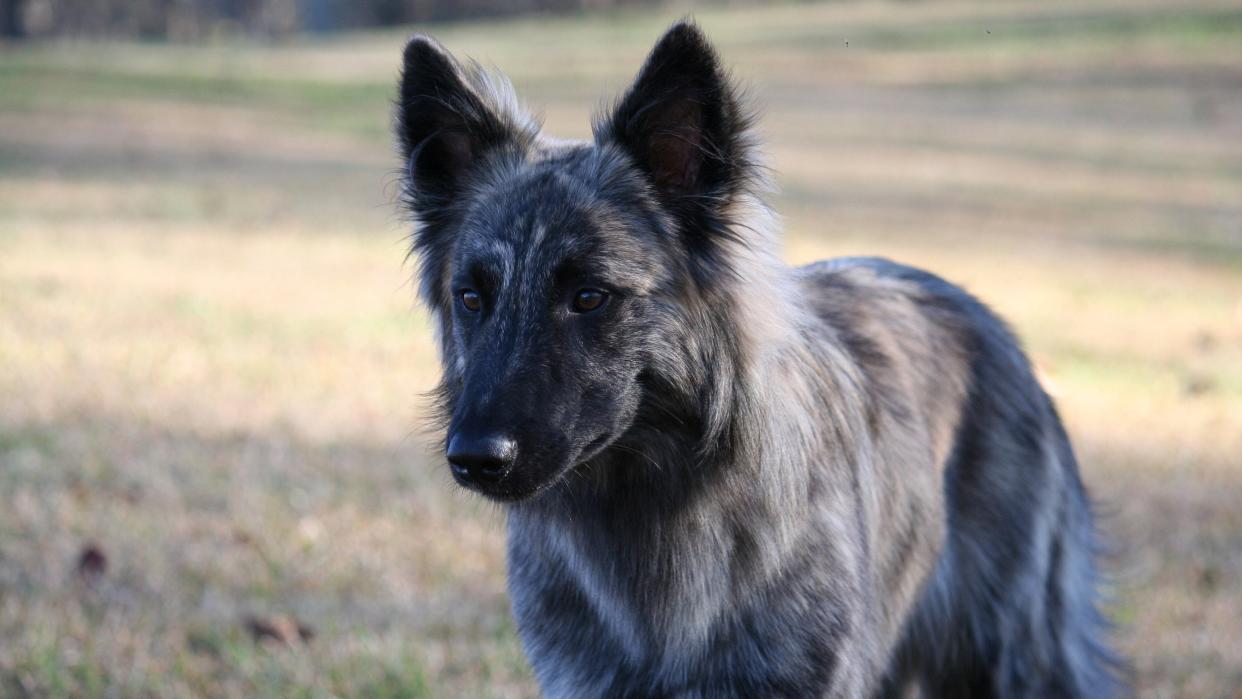
While the amount of shedding will vary depending on coat type, all Dutch shepherd dogs shed heavily in the spring and fall and require daily brushing during this time.
30. They have playful hearts
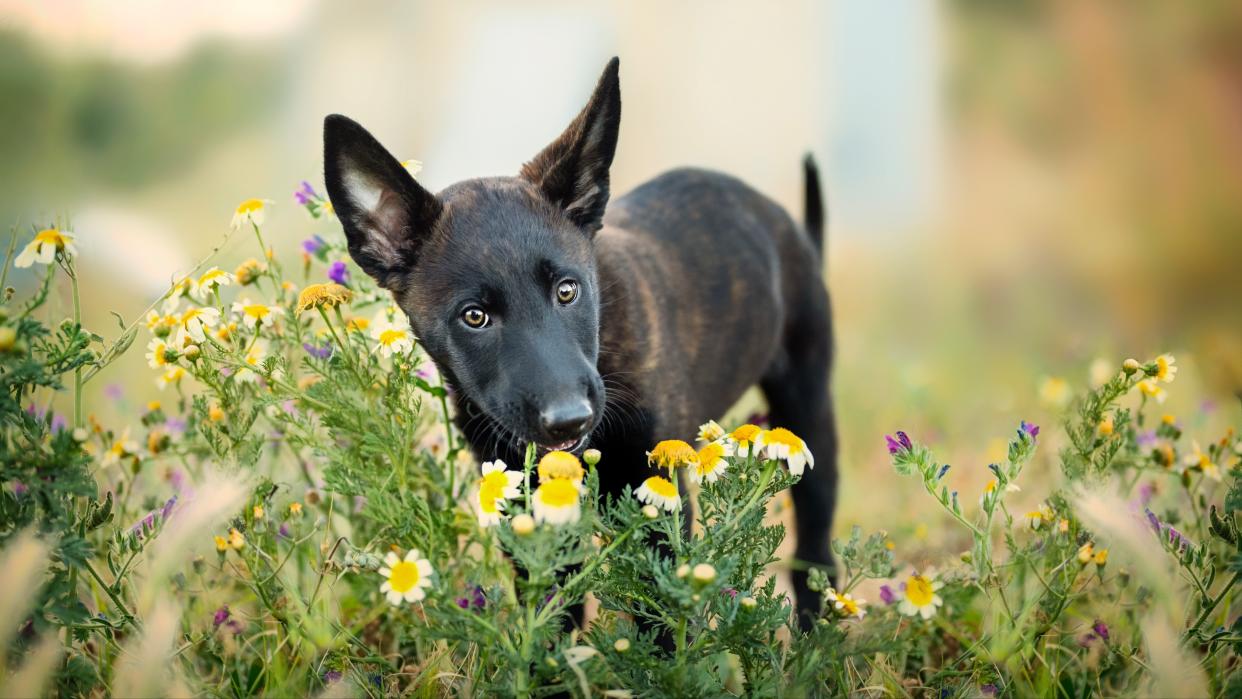
They may be driven to work, but don’t let that fool you, this pup also knows how to let their fur down and relax! Dutch shepherds are playful dogs that adore having fun, so make sure you have some of the best dog toys on hand for those moments when they want to engage in a good game of fetch or tug.
31. Dutch shepherd dogs are real people-pleasers
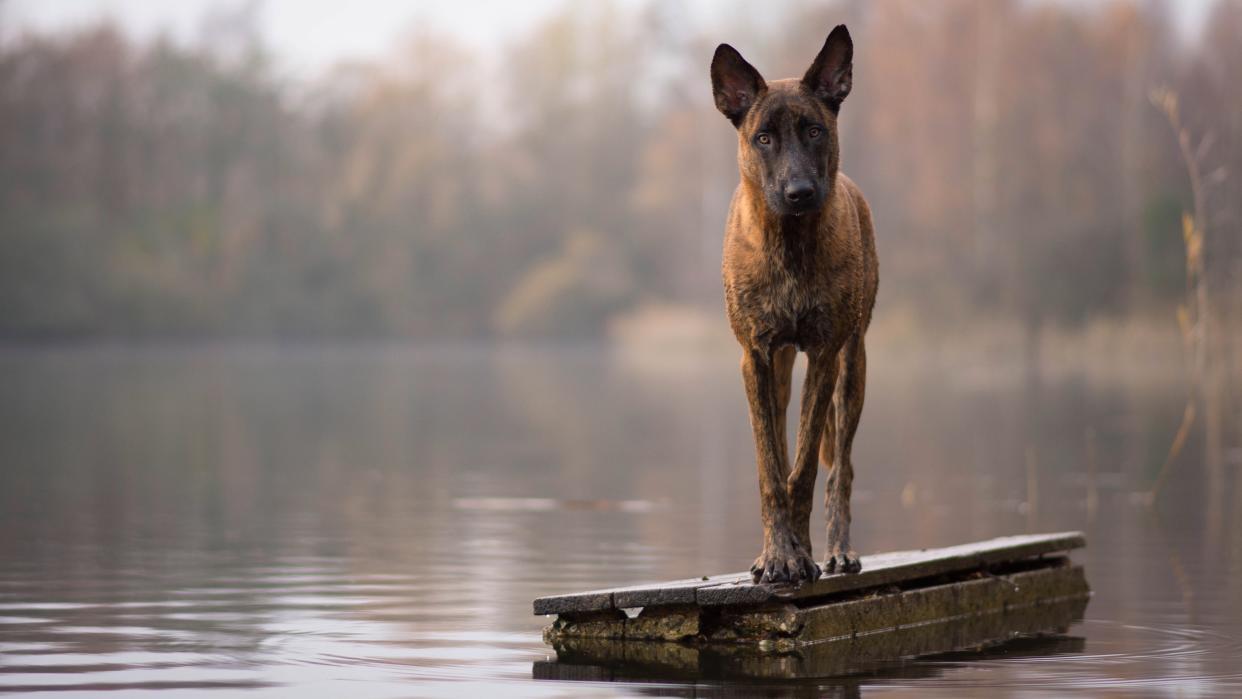
Faithful and loyal companions, Dutch shepherds live to please and want nothing more than for their owners to be happy. Devoted dogs who like to be by their owner's side, their eager-to-please nature comes in handy during training sessions.
32. They need lots of space to run and roam
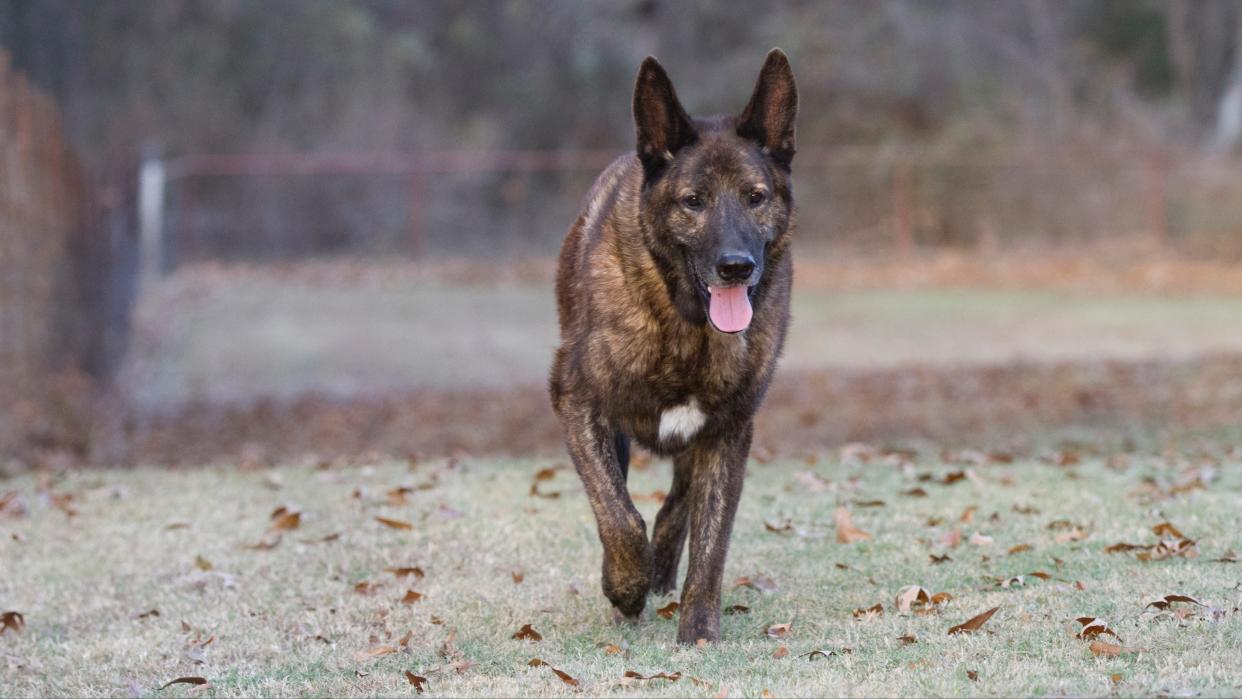
The Dutch shepherd is a very energetic and active breed, who needs ample space to run around. Using them for the purpose they were bred for (as farm dogs) is the ideal scenario, however, they will also do well with a big backyard and plenty of walks each day where they’re able to explore their surroundings.
